Latest news articles
- SGS Beta-SAS Radiocarbon Dating Award 2026 - Applications Open
- SAS Awards Ceremony
- New Student Ambassador - Rebeca Custódio
- SAS Excecutive Board Reading Recommendations - "Tracking Bronze Age 'itinerant smiths' in western Poland"
- SAS Student Ambassador Webinar: "Synchrotron Radiation for Cultural Heritage Materials - Part 2"
Conferences & Networking
The SAS regularly sponsors conferences, workshops, and conference sessions. If you're planning an event on any topic relevant to the goals of the society, please get in touch with the VP of Intersociety Relations so that we can explore partnering with you and your organization.
If you're a student SAS member interested in getting involved with the society and promoting professional fellowship among your peers, check out the Student Ambassador program and reach out to our VP for Membership Development to learn more.
- Braden Cordivari
The Society for Archaeological Sciences (SAS) in collaboration with SGS Beta invites applications for the SGS Beta-SAS Radiocarbon Dating Award. This is an annual competition to award one free AMS radiocarbon date analyzed at SGS Beta. The award is designed to promote the creative use of radiocarbon dating in archaeology and related disciplines, and to propagate such applications into geographic and thematic research areas underrepresented in existing radiocarbon dating work.
The deadline for applications is March 6, 2026. Find out more about eligibility and the application procedure here.
In advance of the application deadline, Dr. Maren Pauly of SGS Beta and the Society for Archaeological Science Student Ambassador team will host an informational webinar, “Radiocarbon Dating for Archaeology.” This webinar will explain how to choose, submit, and interpret archaeological samples to produce dates you can confidently use and defend. We hope that prospective applicants to the award will attend the webinar. This session will take place on February 27, 2026 at 11:00 am Eastern Time (US and Canada)/4:00 PM GMT. Sign up here!
SAS thanks SGS Beta for partnering to encourage early career researchers in archaeological science!
For more information about SGS Beta, visit www.radiocarbon.com.

- Braden Cordivari
Organized by the SAS Student Ambassadors, the awards ceremony held on the 28th of January 2026 aimed to highlight and celebrate the achievements of researchers who have won SAS awards between the years 2022 and 2025.
The awards presented reflect the breadth, rigor, and innovation that define our field—from student research and early career achievement to outstanding published scholarship and interdisciplinary work that advances how we understand the past through scientific methods.
These honors represent more than individual accomplishments. They recognize curiosity, collaboration, and the dedication to scientific inquiry that strengthens archaeological research worldwide. We are especially proud to acknowledge the students and early career researchers whose work continues to shape the future of our discipline.
-Alana Pengilley, SAS Student Ambassador
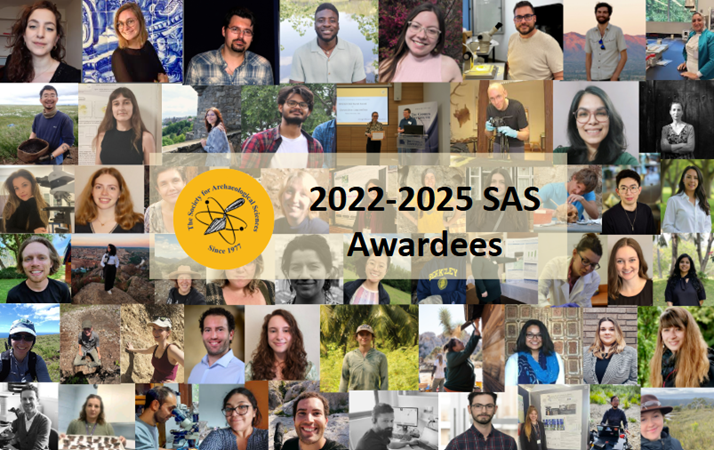
- Braden Cordivari
We are delighted to welcome Rebeca Custódio as the newest Student Ambassador! This program is designed to engage students in professional development and outreach. Rebeca is currently pursuing a Master’s in Archaeology at the Museum of Archaeology and Ethnology of the University of São Paulo (MAE-USP), focusing on the funerary practices of the fisher-gatherer groups who occupied the Brazilian coast. She is particularly interested in the thermal alterations to human bones resulting from cremation rituals, integrating macroscopic and physicochemical analyses of burned remains to improve our understanding of funerary practices and the taphonomic pathways of thermally altered bones. Rebeca’s work with SAS will be focused on breaching a gap in collaborations between the Global South and other nations in Archaeological Sciences. Although her research focus is Bioarchaeology, she plans to organize events dedicated to making connections within the archaeological community. Welcome, Rebeca!
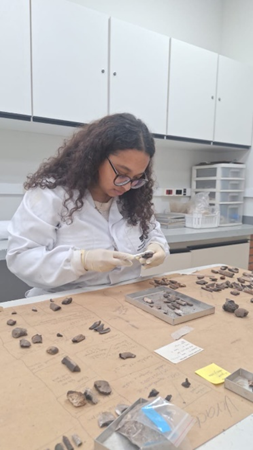
- Braden Cordivari
This month's SAS Executive Board Reading Recommendation comes from Vana Orfanou, VP for Social Media. These reading recommendations are informal and unofficial, highlighting the personal selections of our board members. Papers may be chosen for their novel methodological or theoretical angles, clarity of argument, or engaging topic. (A reminder that SAS members can highlight their own research through our Spotlight program!)
Vana has selected "Tracking Bronze Age ‘itinerant smiths’ in western Poland: insights from Nd and Sr isotope data" by Mateusz Stróżyk et al., which was recently published in Archaeometry. Vana writes: "The paper presents combined insights into the provenance of metallurgical stone moulds via Nd isotopes alongside insights into human mobility via Sr isotopes on human remains from smiths’ graves identified as such from the burial offerings, including the stone moulds. I find this paper particularly exciting for its combination of methods and materials, bringing together material and bioarchaeological insights to address the long-standing question around itinerant smiths during the European Bronze Age. The results of the study, indeed, seem to prove that human mobility was an aspect of early metallurgy."
Check out the paper (avaialable Open Access) here:
- Braden Cordivari
The “Synchrotron Radiation for Cultural Heritage Materials – Part 2” webinar took place successfully on Wednesday, 21 January 2026, at 14:00 GMT.
Organized by the SAS Student Ambassadors, the event aimed to foster dialogue between cultural heritage researchers and synchrotron beamline scientists, addressing questions related to technology, provenance, and the preservation of cultural heritage materials.
The program featured two presentations:
- Synchrotron applications on pigments by Marine Cotte (Beamline Group Leader, European Synchrotron Radiation Facility - ESRF, France)
- Synchrotron applications on ancient metals by Emilie Bérard (Assistant Professor, Université Paris-Saclay, France)
There was strong interest in the event, reflected in the number of applications and the active participation during the webinar. It attracted participants from diverse disciplines, including archaeology, natural sciences, and conservation, and from different educational stages, ranging from undergraduate and master’s students to doctoral and postdoctoral researchers, and academic staff.
Stay tuned for more SAS events!
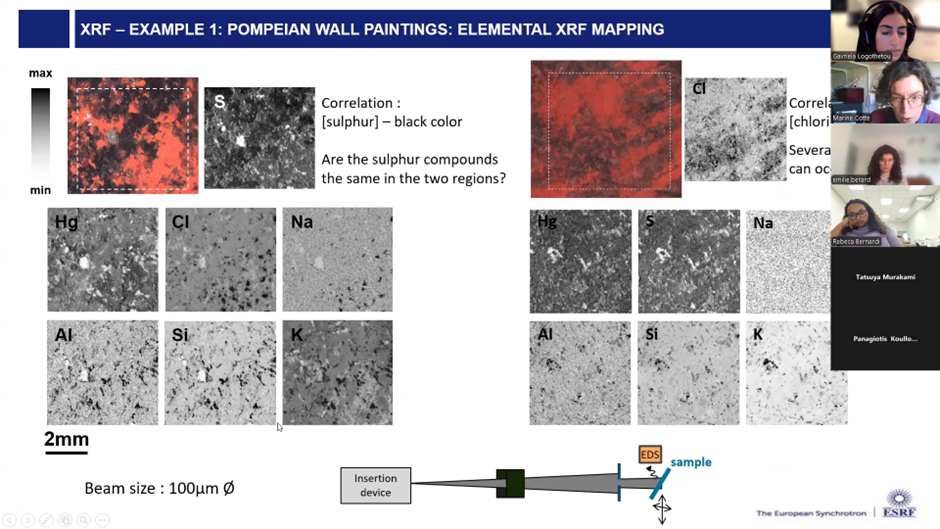
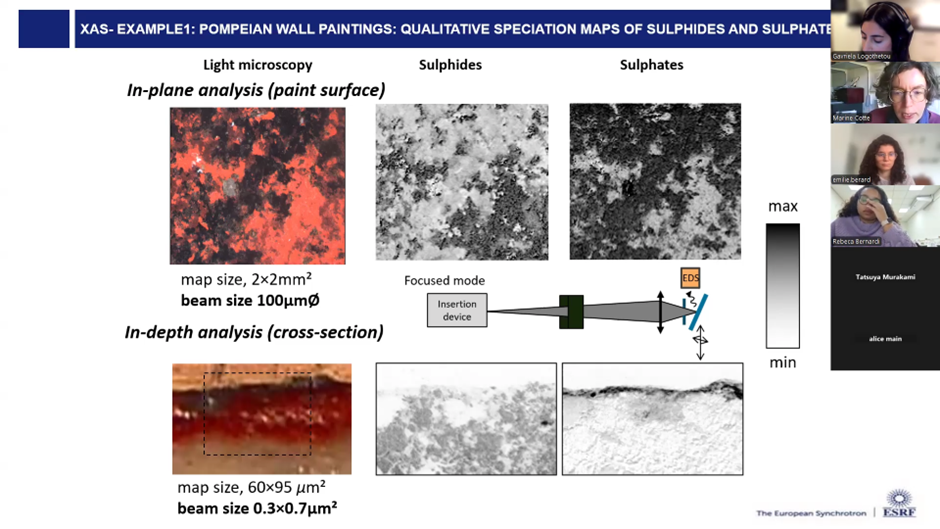
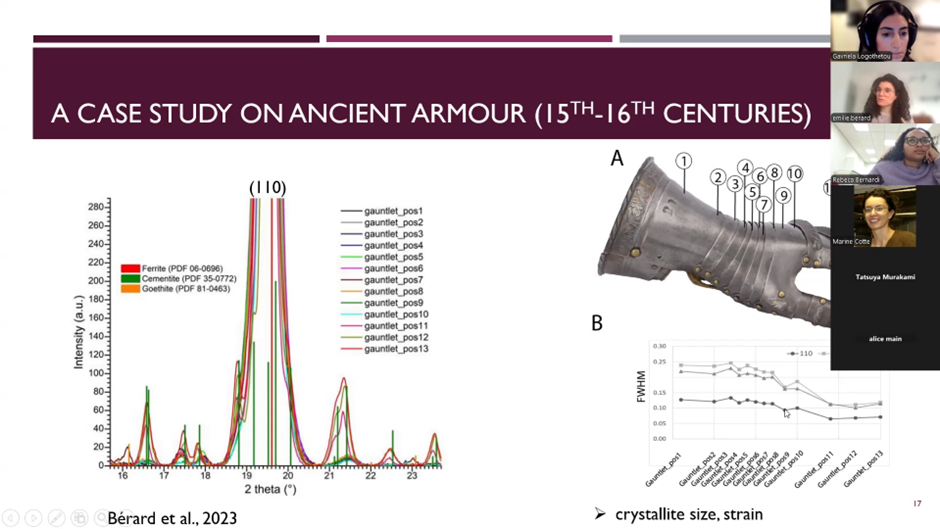
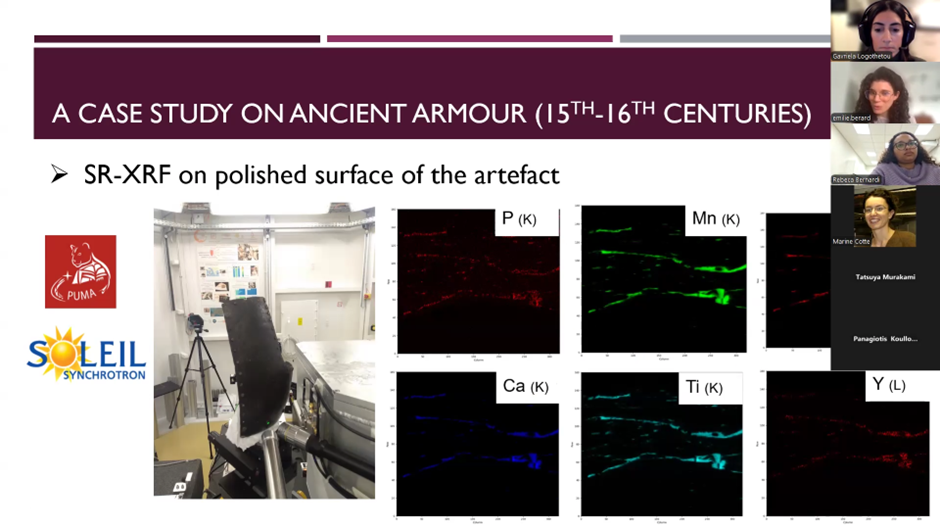
- Braden Cordivari
The SAS Student Ambassadors have organized the “Synchrotron Radiation for Cultural Heritage Materials – Part 2” webinar, which will take place on Wednesday, 21 January 2026 at 14:00 GMT.
Register to attend here: https://forms.gle/yCJTvTJb1d1c4QLy7
This webinar will explore how synchrotron radiation contributes to the study of pigments and metals through selected case studies including XRF, XAS, XRD, CT, which offer insights into composition, microstructure, and alteration processes that are otherwise inaccessible with conventional techniques. Building on examples from current ongoing research by experts in the field, the webinar will highlight how these analytical approaches help archaeologists, conservators, and heritage scientists answer key questions about 𝘁𝗲𝗰𝗵𝗻𝗼𝗹𝗼𝗴𝘆, 𝗽𝗿𝗼𝘃𝗲𝗻𝗮𝗻𝗰𝗲, 𝗮𝗻𝗱 𝗽𝗿𝗲𝘀𝗲𝗿𝘃𝗮𝘁𝗶𝗼𝗻. The webinar also aims to open a dialogue between cultural heritage researchers and synchrotron beamline scientists, laying the groundwork for 𝗳𝘂𝘁𝘂𝗿𝗲 𝗶𝗻𝘁𝗲𝗿𝗱𝗶𝘀𝗰𝗶𝗽𝗹𝗶𝗻𝗮𝗿𝘆 𝗰𝗼𝗹𝗹𝗮𝗯𝗼𝗿𝗮𝘁𝗶𝗼𝗻𝘀.
Part 2 of the series will focus on Synchrotron applications for pigments and metals.
𝐓𝐚𝐥𝐤 𝟏 𝐏𝐢𝐠𝐦𝐞𝐧𝐭𝐬
Speaker: Marine Cotte (Beamline Group Leader, European Synchrotron Radiation Facility, ESRF, France)
𝐓𝐚𝐥𝐤 𝟐 𝐌𝐞𝐭𝐚𝐥𝐬
Speaker: Emilie Bérard (Assistant Professor, Université Paris-Saclay, France)
𝑊𝑒 ℎ𝑜𝑝𝑒 𝑡𝑜 𝑠𝑒𝑒 𝑦𝑜𝑢 𝑎𝑡 𝑡ℎ𝑒 𝑤𝑒𝑏𝑖𝑛𝑎𝑟!
The SAS Student Ambassadors team
